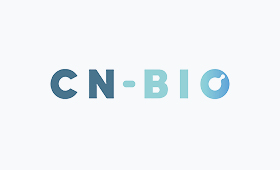WE SAT DOWN WITH ROYCE MORTON, TO DISCUSS HIS LATEST INSIGHTS IN TO THE SCIENCE INDUSTRY IN CAMBRIDGE.
View the highlights of his interview here:
Life Science Industry
AD: What drew you to the life science industry, and what keeps you passionate about it?
RM: I wasn’t exactly drawn to the industry, but I would say that what keeps me passionate is every new company in the Biotech/Life Sciences industry that I meet/start working with, has a unique point of difference / focus on a certain drug or research or system that they working on.
AD: Can you share some key trends or developments in the life science industry that you're excited about?
RM: First off, the mRNA Vaccines: The success of these types of Vaccines against Covid 19, has accelerated research into how the technology from these vaccines could be effective against other diseases. Secondly there have been some major developments in the industry for AI being used to accelerate drug discovery and development. Finally, some key developments in the creation of personalized medicine.
lAB DESIGN AND BUILD SECTOR
AD: What are some of the current challenges we're facing in the lab design and build sector?
RM:Using Cambridge as an example, one of the challenges is that there is high demand for space, but a limit to the amount available. So basically, there is a very limited amount of real estate available for new lab construction, and this high demand is driving up the cost of real estate. But the construction/development companies are reacting to this, and we are continually hearing of new developments being approved which is positive. Examples being - Kadans, Bruntwood, Prologis developers working on Hauxton Science Campus / Merlin Place / Cambridge North / Cambridge South developments.
AD: How do your see the industry evolving in terms of design innovations and technology integration in labs?
RM: I think the industry is evolving rapidly, driven by the need for more efficient, flexible and sustainable laboratories, that can ‘enable science success’ / support advanced scientific research and technological innovation. Adaptable Spaces – Modular components that can be easily reconfigured to accommodate different needs/activities within the lab, Mobile Workstations, Smart Labs – Automated systems/processing, and monitoring/control of labs, Energy Efficiency/Sustainability within the lab (Smart HVAC/Lighting/Systems, further use of data to design a client centric (research specific).
Global Funding
AD: How is global funding impacting the life science industry, and what trends are you seeing in terms of investment and resource allocation?
RM: I think that the life science industry is currently experiencing a surge in venture capital funding for biotech startups, driven by strong enthusiasm in public markets, including strong IPOs and the emergence of SPACs. This funding is particularly focused on advanced technologies such as mRNA, gene editing, artificial intelligence, and machine learning.
There are noticeable regional shifts with significant growth in the Asia-Pacific region and strong support in Europe. Additionally, there is a concerted effort to expand biomanufacturing and lab facilities, often through public-private partnerships. Finally, sustainable investing is on the rise, guided by ESG criteria and impact investment funds.
Funding sources have diversified, including crowdfunding, alternative financing, and government grants, all influenced by the COVID-19 pandemic, which has directed resources towards vaccine and therapeutic development as well as enhancing healthcare infrastructure.




Return to Office trends
AD: What new trends are you noticing with people returning to the office, especially in the life sciences trend?
RM: Wednesday is the office day, and I've noticed that on Fridays the Science Parks don’t feel like such a ghost town anymore; people are coming back in on Fridays now. In this industry, we've found that Fridays work well for networking and reconnecting with clients through events and networking sessions.
AD: How are companies balancing remote work and in-office presence in the current landscape?
RM: I definitely find that companies are setting core days in the office, on days which key meetings are held, and the different teams need to get together vs days out of office where individuals continue research/reflect rather than physically working in the lab.
personal insights and experiences
AD: What do you like most about working in Cambridge, and how does it influence your work in the life sciences sector?
RM: One of the benefits I have found of working in Cambridge is the abundance of networking opportunities within its tight-knit community. The concentration of industry conferences, seminars, and networking events provides excellent chances to connect with industry leaders, potential clients, and collaborators. Cambridge is renowned for its collaborative culture, and this synergy significantly enhances both innovation and the development of new solutions.
AD: Can you share any specific experiences in Cambridge that have been particularly impactful?
RM: Cambridge Wide Open day was a key event in furthering our work, expanding my networking and learning of upcoming developments within the industry. It provided a great opportunity for us to both reconnect with previous clients, and meet new companies that are on the growth journey.
AD: How do you approach building and maintaining strong relationships with clients in such a specialised industry?
RM: Always available for the clients (keeping communication).
- Regular drop-ins when in the area.
- Invites to our local drinks/networking/industry events.
- Doughnut deliveries. 😏
- Regularly checking in with previous clients, for any post project adjustments/requirements.
READ OUR WORKPLACE GUIDE
HOW MUCH DOES A COMMERCIAL FIT-OUT COST IN 2024?
In 2024, the overall cost of an office fit out will vary depending on a variety of factors including size and scope, materials used, labour costs and finishes. Companies may also encounter unexpected costs related to site access and regulatory requirements. Planning ahead can help manage the costs of a commercial fit out as this will allow for research into suitable materials and suppliers, meaning it is important to do detailed research before making any decisions.
.png)
LET'S TALK ABOUT YOUR NEXT REQUIREMENT

